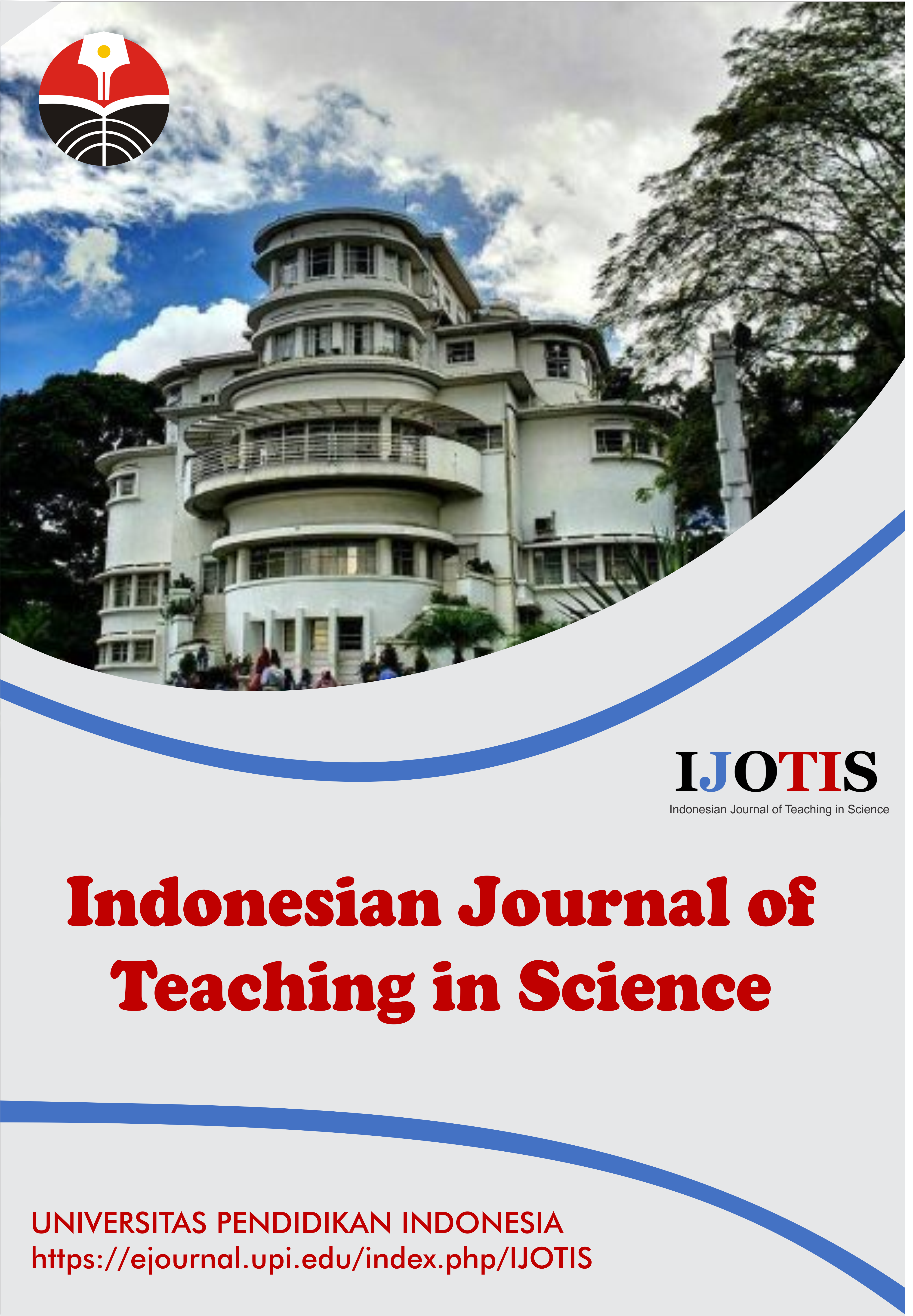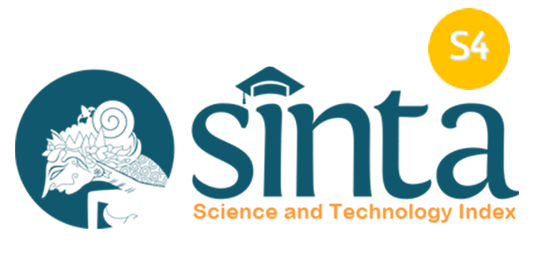Efforts to Enhance Sustainable Consciousness and Critical Thinking in High School Students Through Learning Projects
Abstract
Keywords
Full Text:
PDFReferences
Al-Naqbi, A. K., and Alshannag, Q. (2018). The status of education for sustainable development and sustainability knowledge, attitudes, and behaviors of UAE University students. International Journal of Sustainability in Higher Education, 19(3), 66-88.
Balakrishnan, B., Tochinai, F., and Kanemitsu, H. (2020). Perceptions and attitudes towards sustainable development among Malaysian undergraduates. International Journal of Higher Education, 9(1), 44-51.
Berglund, T., Gericke, N., and Chang Rundgren, S. N. (2014). The implementation of education for sustainable development in Sweden: Investigating the sustainability consciousness among upper secondary students. Research in Science and Technological Education, 32(3), 318-339.
Berglund, T., Gericke, N., Boeve-de Pauw, J., Olsson, D., and Chang, T. C. (2020). A cross-cultural comparative study of sustainability consciousness between students in Taiwan and Sweden. Environment, Development and Sustainability, 22(7), 6287-6313.
Braßler, M., and Sprenger, S. (2021). Fostering sustainability knowledge, attitudes, and behaviours through a tutor-supported interdisciplinary course in education for sustainable development. Sustainability, 13(6), 1-21.
Chang, R. D., Zuo, J., Zhao, Z. Y., Soebarto, V., Lu, Y., Zillante, G., and Gan, X. L. (2018). Sustainability attitude and performance of construction enterprises: A China study. Journal of Cleaner Production, 172, 1440-1451.
Courtenay-Hall, P., and Rogers, L. (2002). Gaps in mind: Problems in environmental knowledge-behaviour modelling research. Environmental Education Research, 8(3), 283-297.
Ekamilasari, E., and Pursitasari, I. D. (2021). Students' critical thinking skills and sustainability awareness in science learning for implementation education for sustainable development. Indonesian Journal of Multidiciplinary Research, 1(1), 121-124.
Facione, P. A. (2011). Critical thinking: What it is and why it counts. Insight Assessment, 1(1), 1-23.
Gericke, N., Boeve‐de Pauw, J., Berglund, T., and Olsson, D. (2019). The Sustainability consciousness questionnaire: The theoretical development and empirical validation of an evaluation instrument for stakeholders working with sustainable development. Sustainable Development, 27(1), 35-49.
Kalsoom, Q., Khanam, A., and Quraishi, U. (2017). Sustainability consciousness of pre-service teachers in Pakistan. International Journal of Sustainability in Higher Education, 18(7), 1090-1107.
Kollmuss, A., and Agyeman, J. (2002). Mind the gap: Why do people act environmentally and what are the barriers to pro-environmental behavior?. Environmental Education Research, 8(3), 239-260.
Kusnoputranto, H., Ayuningtyas, N. V., Purnamasari, O., Riski, M., and Wijaya, D. F. A. (2020). Waste management program to create zero waste in school level: Communication, information, and education (CIE) and participation methods. Indian Journal of Public Health Research and Development, 11(6), 1267-1272.
Littledyke, M. (2008). Science education for environmental awareness: Approaches to integrating cognitive and affective domains. Environmental Education Research, 14(1), 1-17.
Mogensen, F., and Schnack, K. (2010). The action competence approach and the ‘new’discourses of education for sustainable development, competence and quality criteria. Environmental Education Research, 16(1), 59-74.
Nikolic, V., Vukic, T., Maletaski, T., and Andevski, M. (2020). Students’ attitudes towards sustainable development in Serbia. International Journal of Sustainability in Higher Education, 21(4), 733-755.
Olsson, D., Gericke, N., and Chang Rundgren, S. N. (2016). The effect of implementation of education for sustainable development in Swedish compulsory schools–assessing pupils’ sustainability consciousness. Environmental Education Research, 22(2), 176-202.
Papilaya, P. M., and Tuapattinaya, P. M. J. (2022). Problem-based learning dan creative thinking skills students based on local wisdom in Maluku. Al-Ishlah: Jurnal Pendidikan, 14(1), 429-444.
Pavliukh, L. (2014). Environmental awareness of university students. National Aviation University, 60(3), 2629-36.
Rahmadhani, P. (2018). Implementation of guided inquiry learning models with nested method to increase critical thinking skill for eleven-grade student at SMA Negeri 1 Manyar Gresik in reaction rate matter. UNESA Journal of Chemical Education, 7(1), 39-45.
Rahmawati, C., Nopitasari, B. L., Mardiyah W. D. S., Wardani, A. K, and Nurbaety, B. (2020). Counseling on plastic waste management towards zero waste campus ummah. Selaparang Journal of Progressive Community Service, 3(2), 196-198.
Redhana I. W., and Liliasari. (2008). Critical thinking skills learning program in topics reaction rate for students senior high school. Forum Journal Education, 2(27), 103-120.
Sanchez, M. J., and Lafuente, R. (2010). Defining and measuring environmental consciousness. Magazine International of Sociology, 3(68), 731-755.
Summers, M., and Childs, A. (2007). Student science teachers’ conceptions of sustainable development: An empirical study of three postgraduate training cohorts. Research in Science and Technological Education, 25(3), 307-327.
DOI: https://doi.org/10.17509/ijotis.v3i1.55447
Refbacks
- There are currently no refbacks.
Copyright (c) 2023 Universitas Pendidikan Indonesia

This work is licensed under a Creative Commons Attribution-ShareAlike 4.0 International License.
Indonesian Journal of Teaching in Science (IJoTIS) is published by Universitas Pendidikan Indonesia (UPI)
 Indonesian Journal of Teaching in Science
Indonesian Journal of Teaching in Science



